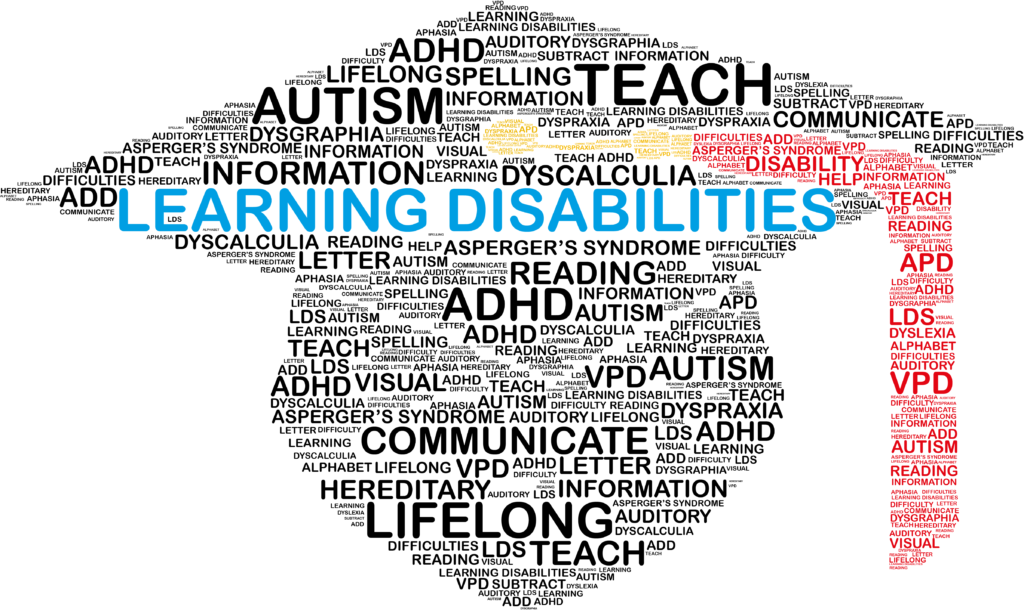A learning disability affects the way a person learns and understand information compared to the expectations for their age. This means they can have a difficulty with:
- Understanding new or complicated information
- Learning skills that are new to them
- Coping by themselves
- Interacting or socialising with other people
Categories of learning disabilities
Learning disabilities can affect people in multiple different ways as well as dictating the level of support they require. As a result, they can be grouped as mild, moderate, severe or profound.
A person with a mild learning disability can be difficult to diagnose as they would be able to live independently with minimal support and be able to communicate with others just fine. The level of support needed for someone with a mild learning disability would involve help with some aspects of their life such as filling out forms or managing their finances.
People with a severe learning disability often communicate with others using simple gestures and words. The care they require would be much higher as there would be some individuals with mobility issues and medical needs. This would also extend to support with essential daily activities such as cooking and shopping.
A person who has a Profound and multiple learning disability (PMLD) will require full time care and support. This is because their ability to communicate and carry out daily necessities such as eating are significantly reduced. They may also have multiple disabilities such as a breakdown of their hearing, sight and movement. Due to this they will have more complex health and social care needs. However, with support from family and carers many people can learn different ways to communicate. In addition to this, they can gain some control over their lives by being involved in decisions that affect them.
Causes
A learning disability is believed to be caused when a person’s brain development is affected either before they are born, during their birth or in early childhood. There are a number of factors that are believed to influence the development of learning disorders, these include:
- Prenatal and neonatal risks – Mother becoming ill during pregnancy, problems during the birth that prevent enough oxygen from getting to the brain, parental substance abuse
- Genetics – A history of learning disability in the family can increase the chances of your child developing a learning disability
- Physical harm – A head injury during early childhood or illnesses such as meningitis can cause long term damage to the brain and thereby increase the risk of developing a learning disability

Signs to look out for
It is important to remember that during their childhood some children may start off as slow learners and struggle to pick up new things. These children will eventually learn the information they need to with the right support and patience. However, for a child with a learning disability these troubles do not get better over time. The signs of learning disabilities differ from child to child and in some cases, they could be difficult to spot but listed below are some of the common signs:
- babies may show a delay in learning to sit or stand,
- children may be slow to talk or have difficulty pronouncing words or learning new words,
- finding it difficult to write and read at grade level
- have problems understanding information and instructions
- Poor memory
- Problems paying attention
Support and guidance
In most cases it would usually be the parents or teachers that would be the first ones to notice that a child is having continuing difficulties in their learning. However, a formal diagnosis of a learning disability would be given by a clinical or educational psychologist or a Paediatrician.
When discovering that your child may have a learning disability it is natural for your mind to immediately think about the challenges they will face and the support they may need throughout their lives. However, as you come to terms with your child’s needs you should remember that with a timely intervention and support your child would be able to live as independent and complete a life as possible.
If you require any further information or have any concerns you can visit the Mencap website. On this site you will be able to reach out to someone who understands what you are going through. You can also join their online community to ask questions about learning disability and share your experiences. You can also contact them on 0808 808 1111, they are available 10am-3pm, from Monday to Friday. If you want you can also email them on helpline@mencap.org.uk.